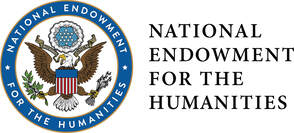Holocaust, Genocide and Contemporary Bioethics: Recognizing the Danger of Public Health Propaganda
Deadly Medicine: How Healers Became Killers
Medical Experimentation During and After WWII
Fifty Years of Change: Henry K. Beecher and Protecting Human Subjects
Comparative Bioethics: A Foundation for Considering Bio-ethical Issues in Medicine and Healthcare Policy
Human Genetics: From Eugenics to the Human Genome Project & Beyond
Medicine, Ethics, and the Holocaust: Reflecting on the Past to Protect the Future
Health Care Ethics, Humanities and Social Justice Webinar Series
This webinar series was produced by the Geisinger Commonwealth School of Medicine in conjunction with Misericordia University, with support from the National Endowment for the Humanities.

This webinar series was made possible in part by the National Endowment for
the Humanities CARES grant, "Humanities in the time of COVID-19: Fostering Community Dialogue" Award Number: AH-274885-20. Any views, findings, conclusions, or recommendations expressed in this (article, book, exhibition, film, program, database, report, Web resource), do not necessarily represent those of the National Endowment for the Humanities.
